Description
The stranger, one of his most famous novels, Albert Camus narrates the story of an insensitive man who has a different view of the world around him. The main character of the story is named Merco and he is waiting for his execution because of the murder he committed.
The Stranger novel consists of two parts. In the first part, the protagonist is shown at his mother’s funeral without any sadness, and then you get acquainted with this person’s life throughout the story and realize that he has not established an emotional relationship with those around him in any way. He walks in complete indifference.
This character, whose name is Mersoo, is pleased with this process of life. But this way of living and influencing others later becomes detrimental to him and puts him in a difficult position. Because very unpleasant events cause Merso to commit a horrible crime.
In the continuation of your story, you enter the second part of the novel, which is related to Merso’s trial. The part where Mersou sees for the first time the product of his behavior with others. The story came to you from across the border, from across the sea. And it speaks to you of the sun and of the harsh spring and the green of it.
The Stranger Honors:
– Part of the list of 100 books of the Le Monde century
Author of the 1957 Nobel Prize in Literature novel
– A movie with the same title was made based on this book in 1967.
Learn more about Albert Camus: The Stranger
Albert Camus was born in 1913 and is one of France’s leading writers. His works are often not ordinary and are not for entertainment. Most of Camus’s stories are philosophical and try to make you think about different things.
Camus was awarded the Nobel Prize in 1957. But two years after that success, he died in an accident. Perhaps the most famous of this famous author is because of this book, but among his other outstanding works, we can mention the plague and misunderstanding.
The Stranger Book Excerpts:
– One of the most popular novels of the twentieth century. (Amazon)
– Camus’s masterpiece. (Guardian)
– An influential cultural event. (Library Journal)
In a part of the alien book we read:
Sunday I woke up with difficulty, so that “Marie” had to call me and shake me. We did not eat because we wanted to go swimming early in the morning. I felt empty and had a little headache. Cigarettes had a bitter taste in my mouth. “Marie” made fun of me because she said “I look like a mourner”. He was wearing a white cotton dress and his hair was open. I told her it was beautiful. He laughed with joy.
As I was coming down, we knocked on Raymond’s door. He replied that he would come now. On the street, because I was tired and because we had not opened the windows, the sun was shining on me. Marie jumped for joy and said in a row what a good weather. I felt better and I was hungry.
I told Marie this, and she showed me her linoleum bag, in which she had put on her swimming trunks and tablecloths. I had no choice but to wait and heard Raymond locked himself in his room. He was wearing blue pants and a white short-sleeved shirt. He wore a straw hat, which made Marie laugh. His forearms, which were white, were covered with black wool. Which broke my heart a little. He whistled and looked happy as he came down. He said to me, “Hello, comrade,” and called Marie “Mademoiselle.”
The Stranger is one of Albert Camus’s best books. A novel that ended in 1940 but was published in 1942 by Gallimar Publishing with the support of Andre Malraux. In this novel, Albert Camus deals with an empty life and presents the experience of feeling empty to the reader.
Camus has three books, known as the Absolute Trilogy, which include The Alien, Caligula, and The Legend of Sisyphus. Studying these three books together will give the reader a better understanding of the issue of emptiness and how to deal with it from Camus’s point of view. We suggest that you read the book The Legend of Sisyphus next to the alien book to get acquainted with the author’s views on “emptiness”.
Albert Camus was born to an Algerian father and a Spanish mother in 1913 and spent his entire childhood with his mother in an Algerian slum. His father was killed in 1914 during World War I. Camus’s mother played a major role in his life, and the importance of the mother’s place in his books is clear.
Camus’s fame peaked with the publication of The Alien, and in 1957 Camus eventually won the Nobel Prize in Literature. Describing his work, the Nobel Institute writes: “His important literary works are accompanied by enlightenment and accurate listening to the problems of the human conscience in our time.”
The Stranger Book
The beginning of the alien book is without a doubt one of the most enduring and even shocking beginnings in the world of literature. Short sentences that, in addition to showing the main character of the book, immediately engage the reader. These are the sentences:
Mom died today. Maybe yesterday. I do not know. I received a telegram from the nursing home: “My mother has died. Tomorrow’s funeral. With respect.” It does not deliver anything. Maybe it was yesterday. (Alien Book by Albert Camus – Page 5)
The narrator of the alien novel is a single young man living in Algeria who works for a company. Someone whose last name is “Morso” but whose first name is unknown.
Morso does not say much about the book in the past, but we learn that he lived in an apartment with his mother and did not see his father. He later sent his mother to a nursing home, but this does not mean that he did not love or have a close relationship with her.
Now Morso had to go to his mother’s funeral. So he takes a leave of absence from his boss and travels by bus to his destination. After Morso’s indifference to the time of his mother’s death, the second shock comes to the reader when he sees that he is not even willing to open the coffin for the last time and see his mother. Instead, he smokes and drinks coffee.
It is noteworthy that Morso himself knows that this behavior is unusual and even feels that others are prosecuting him for not seeing his mother for the last time. But in any case, he does not care and is completely indifferent.
The story continues with the description of the days after the funeral.
Morso, as a man who ignores everything, goes to the pool for swimming the day after his mother’s death, and when he meets a woman he already knew, he goes to bed with her that night. Even some time later, when the woman proposes to him, Morso responds positively even though he does not like her.
In the first part of the book, we also get to know Morso’s neighbors, each of whom later plays a decisive role in the story. Morso sees hypocrisy and exaggeration everywhere, but at the same time he does not withhold any help from his neighbors. In particular, he helps Ramon a lot to get proper revenge on his mistress! The result at the end of the first part is that Morso commits a horrible act and kills an Arab who is Ramon’s beloved brother.
It was as if a crack had broken across the sky and a rain of fire was falling from it. My whole being contracted and my hand was pressed harder on the arrow. The trigger came under my finger; I touched its smooth handle; And there, in the middle of it all, was a loud noise that made everything happen.
I put away the sweat and the sun. I knew that I had disturbed the balanced flow of the day and broken that extraordinary coastal silence in which I was happy. Then I fired four more shots at that lifeless body. The bullets landed in the body without leaving a trace of themselves. It was like playing four hard knocks on the door of misery. (The Alien Book by Albert Camus – Page 63)
The second part of the book is in prison and in court. It is in this section that we see Morso’s passive reaction in court and understand the philosophy of his work to some extent. In the following, we will talk more about the second part and the philosophy in the book. So keep in mind that we may reveal parts of the book below.
About Albert Camus’s The Stranger
The most important chapter in the book to understand the alien novel and Morso’s works is the final chapter. That is, where Morso talks to the priest in prison and specifically points out the futility of life.
Morso says that our lives and work do not matter because in the end, death awaits us all. Of course, it must be borne in mind that Morso has already denied the existence of the afterlife and does not believe in God. Morso is clearly an absurd human being who is condemned for his honesty.
Albert Camus writes in a later note about the alien:
To me, Morso is not despised, but a naked poor man who loves the sun that leaves no shadow. Not only is it not insensitive, but on the contrary it has a strong and therefore deep salinity, absolute passion, the passion of truth. This truth, however, is a negative truth, a truth born of living and feeling, but without this negative truth, one can never overcome oneself or the world.
But Morso’s character and his clarity and frankness may be what attracts most readers. Morso is too frank and that’s to his detriment. But this antisociality and telling the truth in any situation is exactly what has made him a strong and profound character. Mario Vargas Llosa writes about Morso’s character:
One of the most terrifying aspects of his personality is his indifference to others. Serious concepts, ideals, and issues such as love, religion, justice, death, and freedom have no effect on him. Just as he does not remember the sufferings of others. Strangely, Morso, though anti-social, is not a rebel because he knows nothing about the concept of incompatibility.
What he does does not depend on a principle or belief that ultimately leads him to deny the existing order. That’s what he is. (Invitation to Watch Hell – The Stranger Must Die, About an Alien – Translated by Abdullah Kowsari)
Mario Vargas Llosa’s reference is accurate and correct. Morso is what he is. He has no practical initiative and is a passive person who considers the world absurd. He does not make any effort to get rid of this emptiness. In court, when asked, Morso only answers the question and does not even try to explain the reason for his actions or life. “The naked alien describes man in the face of emptiness,” says Camus in his book of notes.
One of the most important issues that the foreign book criticizes is the behavior of the society, which is represented in the book, the court and the jury. To them, Morso is a monster who did not show any emotion at his mother’s funeral and did not shed a single tear. That is why he should be condemned so that he does not become a role model for others.
In another part of his later note on the alien, Albert Camus writes:
A long time ago, I summed up the alien in one sentence that I know was very paradoxical: “In our society, anyone who does not cry at his mother’s funeral can be sentenced to death.” I meant simple. I meant that the hero of this book is sentenced to death for not being willing to participate in the game. In this sense, he is alien to the society in which he lives, he wanders in the margins, he is in the margins of life, alone and full of the desire for pleasure.
Another topic that is perhaps most discussed in the alien novel is the four-bullet Morso fires after killing an Arab man. In the book, the interrogator is desperate for an answer and asks Morso, “Why, why did you shoot the body that fell to the ground?” If you have any comments on this, please be sure to write to us in the comments section.
The last point is that many translations of the alien book have been published and we do not have the necessary resources to check all the translations in Cafebook. However, we suggest that you prepare a very good translation of Khashayar Deihimi and read the book safely.
Sentences from the The Stranger book
When I went out, the sun was shining. The sky is red on the hills between Marango and the sea. The wind coming from the hills also brings with it the smell of salt. It turned out that the day ahead was a sunny day. I had not been in the summer for a long time and I felt how much I could enjoy walking now if it were not for my mother. (Alien Book – Page 14)
I closed the window and as I was looking in the mirror my eyes fell on a corner of my desk where my alcohol lamp was next to a piece of bread. I forgot that I had spent another Sunday anyway, the other mom was buried, and I had to go back to work, and finally, nothing had changed. (Alien Book – Page 27)
Looking at my life, I found no reason to be unhappy with my life. (Alien Book – Page 46)
All my attention was on the sun, which made me feel good. The beach sand was slowly getting hot under our feet. For a few moments I held back my strong desire to go into the water, but at last I said to Mason, “Shall we go?” And I dived into the water. (Alien Book – Page 54)
Suddenly he got up. He took long steps to the other side of his office and opened one of his file drawers. He pulled out a silver cross with the image of Christ crucified and came to me as it shone. In a completely different voice, in a voice that almost trembled, he shouted, “Do you know what this is?” I said, “Yes, of course.” He told me sharply and warmly that he believes in God and believes that no human being is so sinful that God does not forgive him, but in order for God to forgive someone, he must first repent and become like a child with a pure heart. Is and can accept everything. (Alien Book – Page 70)
A person who has lived even one day can easily spend a hundred years in prison. (Alien Book – Page 82)
The prosecutor was talking about my soul now. He told the jury that he had searched my soul and found nothing. He said that the truth is that I have no soul at all, there is nothing human in me and there is none of those moral principles that are in the hearts of human beings. (Alien Book – Page 104)
Then, I do not know why, something exploded inside me. I screamed with all my might, cursed him, and said he did not have to pray for me. I was clinging to his collar. I would pour out everything that was in my heart and stuck in my throat. It was a mixture of joy and anger. So he was so sure of everything? This assurance is not worth a single woman’s hair. He could not even know that he was alive because he lived like the dead.
Maybe my hand seemed empty. But I was sure of myself, confident of everything, much more confident than him, confident of my life, and confident of my death, which was coming to me soon. Yes, that’s all I had. But at least as much as this life was in my hands, I was in this life. I was right, I’m still right, I was always right. (Alien Book – Page 123)
Nothing, nothing mattered and I knew why, he knew why. In all this empty life I had lived, from the very bottom of my future, from the years that had not yet come, a dark breath always came to me, a dark breath that made no difference in the way of everything that was promised to me at that time. Promises for years that were no more real than the years I was living right now. What did the death of other people or the love of my mother mean to me;
God, what did the lives that people choose, or the destiny they decide for themselves, matter to me, when it was certain to me that we all have the same destiny, me and billions of other better people, who like him said they were my brother ? He could not understand. He was also sentenced one day. What did it matter if he was also accused of murder and then executed because he did not cry at his mother’s grave? (Alien Book – Page 124)
1- Introducing the book The Stranger on YouTube
2- Introducing the book The Stranger in Aparat

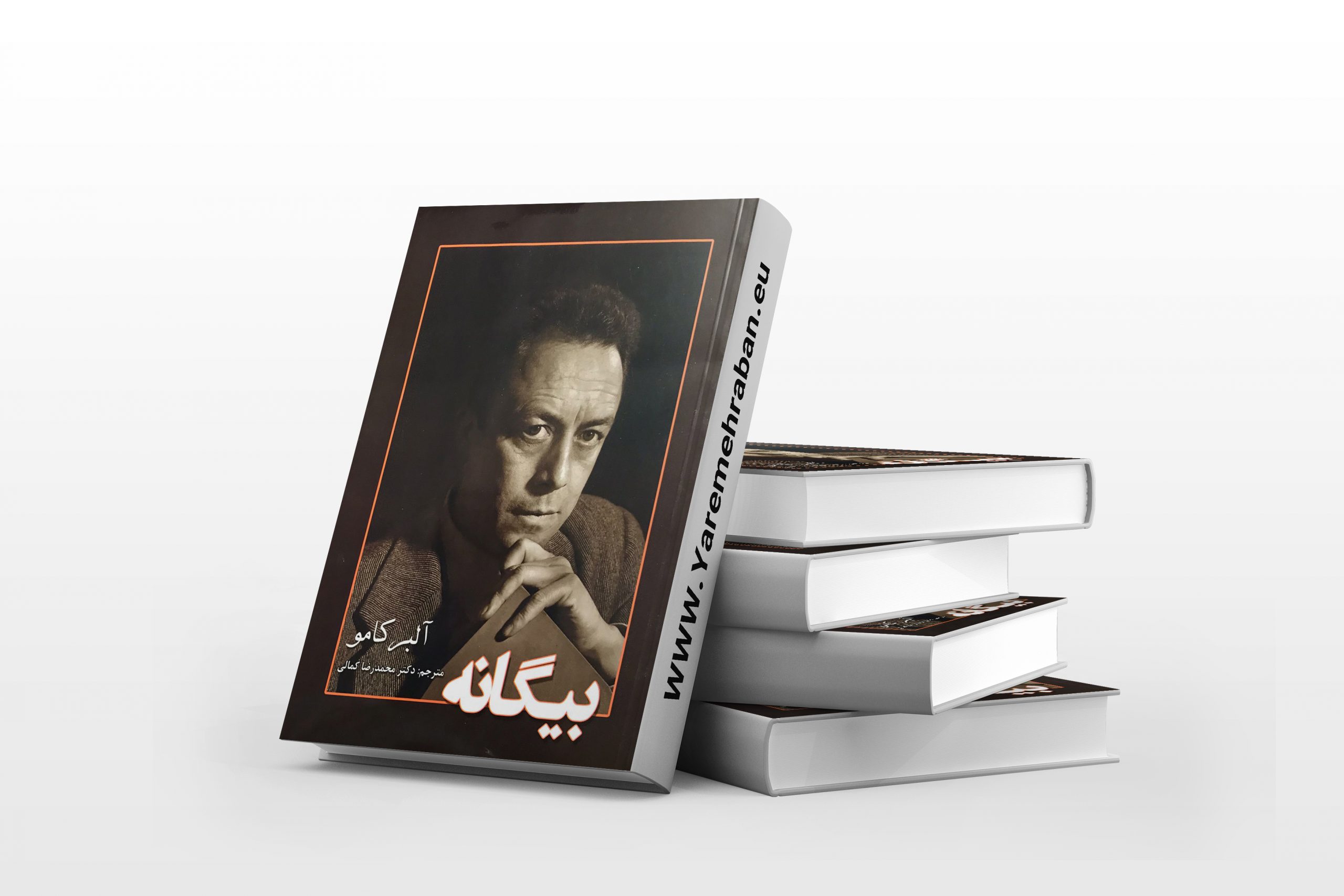


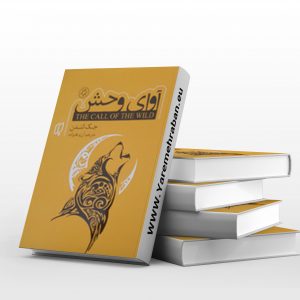




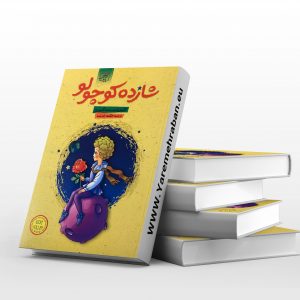

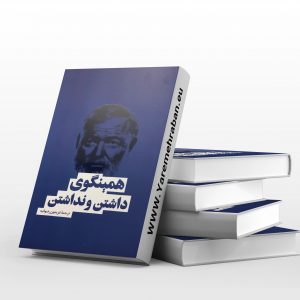
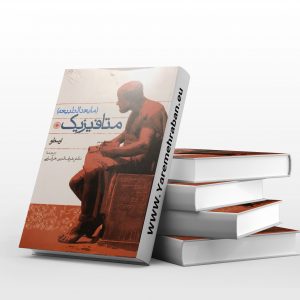
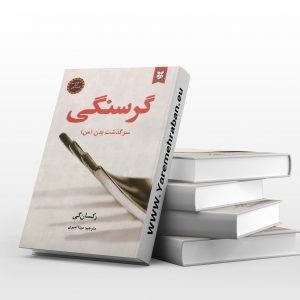
Reviews
There are no reviews yet.